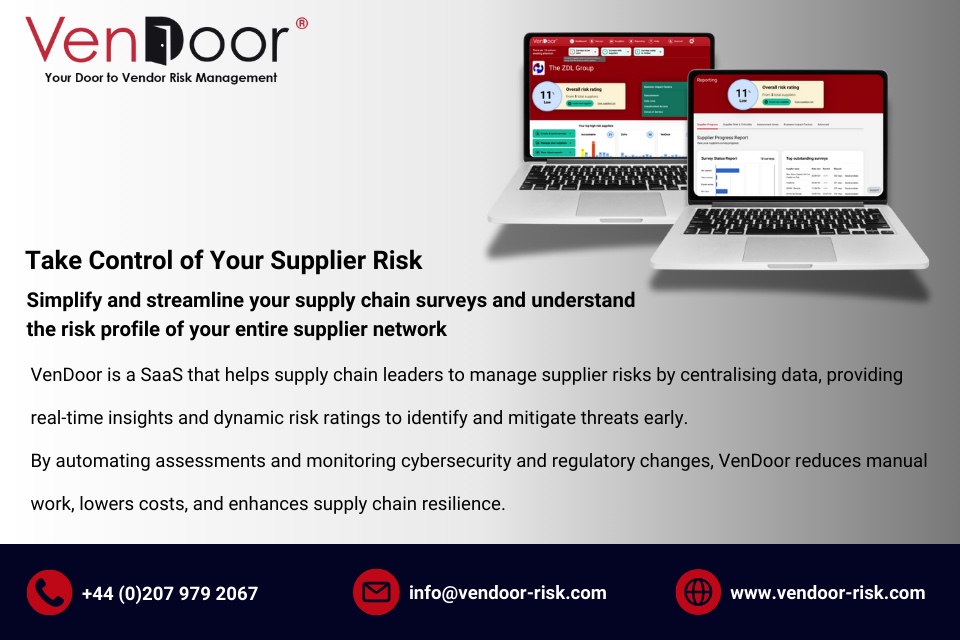Almost every UK organisation admits their supply chain needs improving, and over half (58%) think their supply chain needs a lot/significant improvement.
That’s according to research from SAP, which says that in response, 84% of UK businesses are planning to move on from the 50-year-old ‘just in time’ supply chain model, which prioritised costs above all else when selecting suppliers, to a ‘just in case’ approach.
The findings from the “Tomorrow’s Supply Chain: Disruption Around Every Corner” report highlights that since the start of the pandemic, supply chain issues have been disastrous for organisations in the UK. 66% of businesses have experienced delays in production of goods/delivery of services, 64% have seen revenues decrease and 58% have experienced a loss of customers.
Given this outlook, it perhaps comes as little to no surprise that almost a quarter (23%) of businesses expect supply chain issues to last until Summer 2023.
Earlier this year, the UK Chancellor Rishi Sunak said: “The supply chain crisis felt by so many businesses could in fact provide an impetus for companies to improve productivity, and thus ensuring higher wages are not cancelled out by rising inflation”.
But the picture for UK businesses tells a different story. For many businesses, increasing the price of their products/services isn’t an option to cover increases in supply chain costs. Instead staff will bear the brunt of any cost rise as 68% expect wage/recruitment freezes and 61% plan job cuts.
SAP says UK businesses are looking to the government for supply chain recommendations, but they are torn over the advantages and disadvantages of deglobalisation:
- 60% of businesses want increased government collaboration with industry
- Over half said the government should monitor the UK’s supply chain itself and invest where necessary (56%) and there is demand for increased industrial policy and trade policy (54%)
- The majority (72%) of UK businesses think deglobalising the UK’s supply chains would be disastrous to economic growth but over half (56%) plan to prioritise UK-based supply chain solutions.
Michiel Verhoeven, Managing Director SAP UK & Ireland, said: “The challenges and uncertainty facing so many UK businesses has meant that, for the majority of consumers, the days of wandering into a supermarket and seeing full shelves of produce now seem like a distant memory.
“Where once supply chain management was mostly about cutting costs, businesses are faced with the challenge of staying ahead of consumer demand, while improving resilience, cutting carbon emissions, reducing staff churn and keeping costs down. Years of political, social and economic uncertainty, on top of a global pandemic, have exacerbated challenges with the UK’s current supply chain models. Whatever future external factors disrupt the movement of goods/ services, our on-demand consumer culture is only going to increase. Overnight shipping is considered late, with hourly tracking updates expected. A novel approach is needed to meet this demand.”
Global logistics, consulting and manufacturing organisation, Unipart Group, recently announced a deepened partnership with SAP to deliver supply chain resilience and bring to life its extensive expertise in forecasting, Machine Learning, sensors and data & analytics.
Commenting on the report findings, Unipart Logistics Managing Director, Ian Truesdale, said: “Although deglobalisation and other structural changes to supply chains like re-shoring may help UK economic growth, the changes and hence opportunities are more complex. We are seeing that growth can be increased further by developing a much more sophisticated approach to understanding patterns of demand and the impact of those changes along the supply chain to manage risks and prevent shortages.
“It’s why we are re-engineering our processes and streamlining our data to focus on process design and governance, operational execution and data & analytics. In doing so we, aim to have the ability to forecast, optimise and simulate supply chains to provide greater agility and resilience,” he added.
Elsewhere, findings from the study show that UK businesses are exploring various other avenues to improve their supply chains, in particular adopting new technology and implementing new contingency measures:
- 70% plan to adopt new technology to help overcome challenges in the next 1-2 years
- 51% plan to find new environmentally friendly supply chain solutions
Michiel concluded: “It is exciting to see so many organisations are realising the importance of investing in advancing technologies to innovate and that are planning to adopt new environmentally supply chain solutions. Resilient supply chains must be sustainable, not only in terms of the environment, but sustainable against developments in technology and infrastructure in the UK and abroad. For decades, supply chain management has focussed on cost – where keeping them lean and fast has been the priority. This is different from being agile and resilient. With the end of ‘just in time’ models, businesses have to start putting the same expectations on their supply chain as they do on their wider business, structuring themselves to be ‘just in case’, so that when disaster occurs, they can adapt. Those who don’t make this change are in for a very tough 18 months.”







